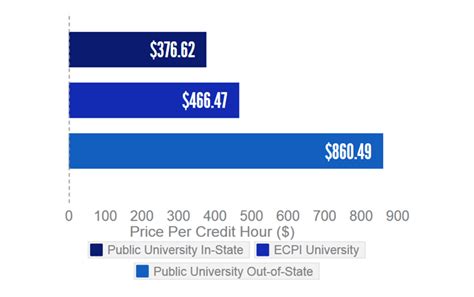As you embark on your higher education journey, understanding the financial implications is crucial. The cost of credit hours plays a significant role in determining the overall expense of your degree program. Michigan State University (MSU) offers various programs and courses, and the credit hour cost varies depending on several factors. This article provides a comprehensive breakdown of MSU’s credit hour costs, helping you navigate this aspect of your educational journey with clarity.

Understanding Credit Hours
Credit hours are a standard unit of measurement used to quantify the academic workload of a course. At MSU, most undergraduate courses are worth three credit hours, while graduate courses generally carry one to four credit hours. The number of credit hours required to complete a degree program varies depending on the specific major and program structure.
Undergraduate Credit Hour Cost
For the 2023-2024 academic year, undergraduate students at MSU pay the following credit hour costs:
| Residency Status | On-Campus | Online |
|---|---|---|
| Michigan Resident | $592 | $592 |
| Non-Michigan Resident | $1,402 | $1,402 |
Graduate Credit Hour Cost
Graduate students at MSU pay different credit hour costs based on their program and residency status. Here is a breakdown of the costs:
| Program | Residency Status | Credit Hour Cost |
|---|---|---|
| Master’s Degree | Michigan Resident | $1,045 |
| Master’s Degree | Non-Michigan Resident | $1,888 |
| Doctoral Degree | Michigan Resident | $1,306 |
| Doctoral Degree | Non-Michigan Resident | $1,923 |
Additional Fees
In addition to credit hour costs, students may also need to pay additional fees such as:
- Application fee
- Course fees (for specific courses or programs)
- Technology fee
- Student activity fee
- Health insurance (if not covered by other insurance)
Financial Aid and Scholarships
MSU offers various forms of financial aid, including grants, scholarships, and loans, to assist students in covering the cost of their education. Students are encouraged to explore these options and apply for financial aid as early as possible.
Effective Strategies for Managing Credit Hour Costs
- Choose in-state residency if possible. Michigan residents pay significantly lower tuition rates than non-residents.
- Take advantage of financial aid. Explore scholarships, grants, and loans to reduce the financial burden.
- Consider taking online courses. Online courses often have lower credit hour costs than on-campus courses.
- Plan your course schedule strategically. Take advantage of courses that offer multiple credit hours to minimize the total number of credit hours required for your degree.
- Look for course discounts. Some courses may offer discounts for early registration or bulk enrollment.
Common Mistakes to Avoid
- Underestimating the total cost of attendance. Remember to consider not only tuition but also fees, housing, meals, and other expenses.
- Relying solely on student loans. While student loans can be helpful, it is important to borrow responsibly and understand the repayment terms.
- Not exploring financial aid options. Many students fail to apply for financial aid, missing out on opportunities to reduce their educational costs.
- Taking too many credit hours. Overloading your schedule can lead to academic difficulties and financial stress.
- Ignoring additional fees. Be aware of additional fees and plan accordingly to avoid unexpected expenses.
Step-by-Step Approach to Estimating Credit Hour Costs
- Determine your residency status (Michigan resident or non-resident).
- Identify your program and degree level (undergraduate or graduate).
- Check the MSU tuition website for the current credit hour costs.
- Multiply the credit hour cost by the number of credit hours required for your program.
- Add any additional fees, such as course fees or technology fees.
- Explore financial aid options to reduce the out-of-pocket expenses.
Conclusion
Understanding the credit hour cost at Michigan State University is essential for planning your financial future. By carefully navigating the costs and following effective strategies, you can minimize the financial burden of your education and maximize the return on your investment. Remember to consult with the MSU financial aid office and other university resources for personalized guidance and support.
